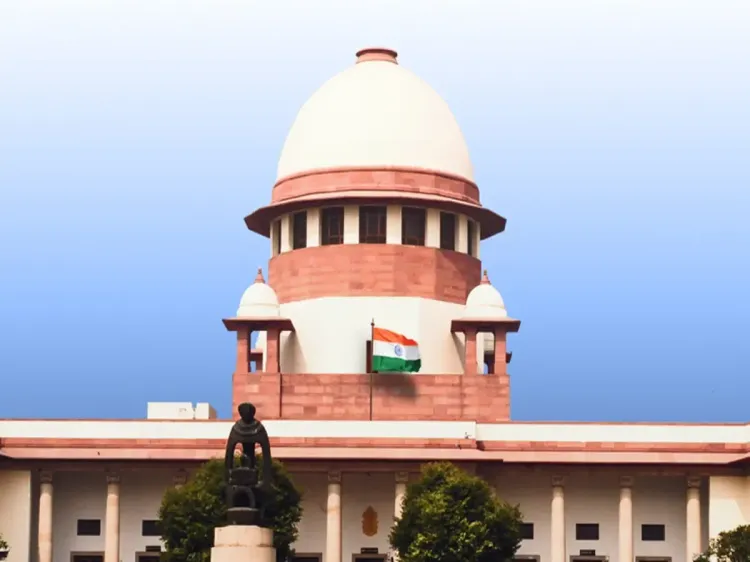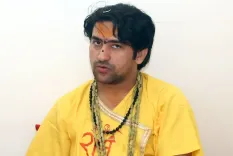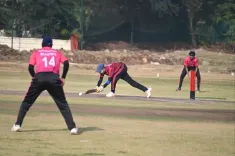Why Did the SC Dismiss the Plea Against Banu Mushtaq Inaugurating Mysuru Dussehra?

Synopsis
Key Takeaways
- Supreme Court's ruling affirms inclusivity in cultural celebrations.
- Opposition to Banu Mushtaq's role centers on her past remarks.
- Dussehra festival symbolizes the triumph of good over evil.
- Karnataka government defends its decision as a celebration of culture, not religion.
- Debate continues over the intersection of tradition and modernity.
New Delhi, Sep 19 (NationPress) The Supreme Court has, on Friday, rejected a petition aimed at halting the Congress-led Karnataka government's choice of having Booker Prize laureate Banu Mushtaq inaugurate the renowned Dussehra festival in Mysuru city. A panel of Justices Vikram Nath and Sandeep Mehta found the argument that a non-Hindu individual should not lead pujas unconvincing, especially considering that Banu Mushtaq has previously made remarks deemed offensive to religious sentiments.
On Thursday, Chief Justice of India B.R. Gavai consented to schedule the special leave petition (SLP) for September 19 following an urgent request for its hearing. The SLP challenges the Karnataka High Court's dismissal of public interest litigations (PILs) questioning the state government's decision to invite Banu Mushtaq to inaugurate Dussehra.
The inauguration traditionally involves offering floral tributes to Goddess Chamundeshwari, which has led to opposition against Banu Mushtaq officiating at the festival. In a ruling delivered on September 15, a bench comprising Chief Justice Vibhu Bakhru and Justice C.M. Joshi stated that no rights were infringed, emphasizing that the Vijaya Dashami festival is celebrated nationwide as a symbol of the triumph of good over evil.
Critics labeled the decision to invite Banu Mushtaq as “incorrect,” citing her previous anti-Hindu comments and criticisms of the Kannada language. Reports suggest she has made disparaging remarks about Goddess Bhuvaneshwari and the Kannada flag, which features haldi (yellow) and red (sindoor) colors. One of the PILs, filed by Bengaluru resident H.S. Gourav, argued that inaugurating Dussehra should be an act reserved for Hindu dignitaries.
In contrast, the Karnataka government has reaffirmed its commitment to having Banu Mushtaq inaugurate the festival, asserting that Dussehra represents a 'Nada Habba' (festival of the land) rather than a strictly religious occasion. Deputy Chief Minister and state Congress President D.K. Shivakumar's remark that Chamundi Hills is not solely a Hindu domain has further intensified the debate.










